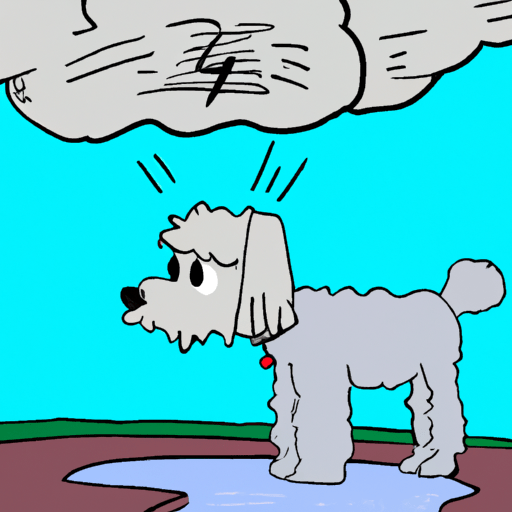Understanding Your Dog’s Fear Response
You may have noticed your furry friend having an accident in response to a stressful situation. This is not uncommon, and there are numerous reasons for why dogs pee when they are scared. Understanding your dog’s fear response helps you better cater to their needs and ensure their well-being.
- Submissive Urination: This is a common behavior in puppies, but could also be seen in adult dogs. It’s their way of communicating they are not a threat.
- Anxiety: Dogs with separation anxiety or fear of loud noises may pee as a response to their stress.
The Role of the Nervous System
The nervous system plays a significant role in your pet’s fear response. When a dog is frightened, the sympathetic nervous system – the ‘fight or flight’ system – kicks into gear, releasing adrenaline and causing various physical changes, including a need to urinate.
Here’s a simple table to help you understand the process:
| Nervous System | Effect | Result |
|---|---|---|
| Sympathetic (activated during fear) | Releases adrenaline | Increased heart rate, need to urinate |
| Parasympathetic (activated during calm) | Nullifies adrenaline’s effects | Normal heart rate, no urge to urinate |
Helping Your Dog Overcome Fear
It’s heartbreaking to see your furry friend in distress. As a caregiver, there are several ways you can help your beloved pet overcome their fears:
- Slow, Steady Desensitization: Gradually expose your dog to the thing that frightens them, but at a much less intense level.
- Counter-Conditioning: Pair the fear-inducing stimulus with something your dog loves, thereby creating a positive association.
- Professional Help: If the problem persists, seek the help of a professional dog trainer or animal behaviorist.
The Importance of Patience
Remember, the most important thing you can offer your dog during this process is patience. It can take time for your dog to overcome their fears, and there may be setbacks along the way. Celebrate small victories and remember that progress, no matter how small, is still progress.
Frequently Asked Questions (FAQs)
Q: Can a vet help with my dog’s fear-induced urination?
A: Yes, a vet can help identify any underlying medical conditions that may be contributing to the issue.
Q: Are certain breeds more prone to fear-induced urination?
A: While any breed can exhibit this behavior, it’s more common in smaller breeds.
Q: Can medication help?
A: In some cases, medication may be recommended. Always consult with a vet for the best course of action.
Q: Is punishment effective?
A: No, punishment can increase fear and anxiety, making the problem worse. Always use positive reinforcement methods.



